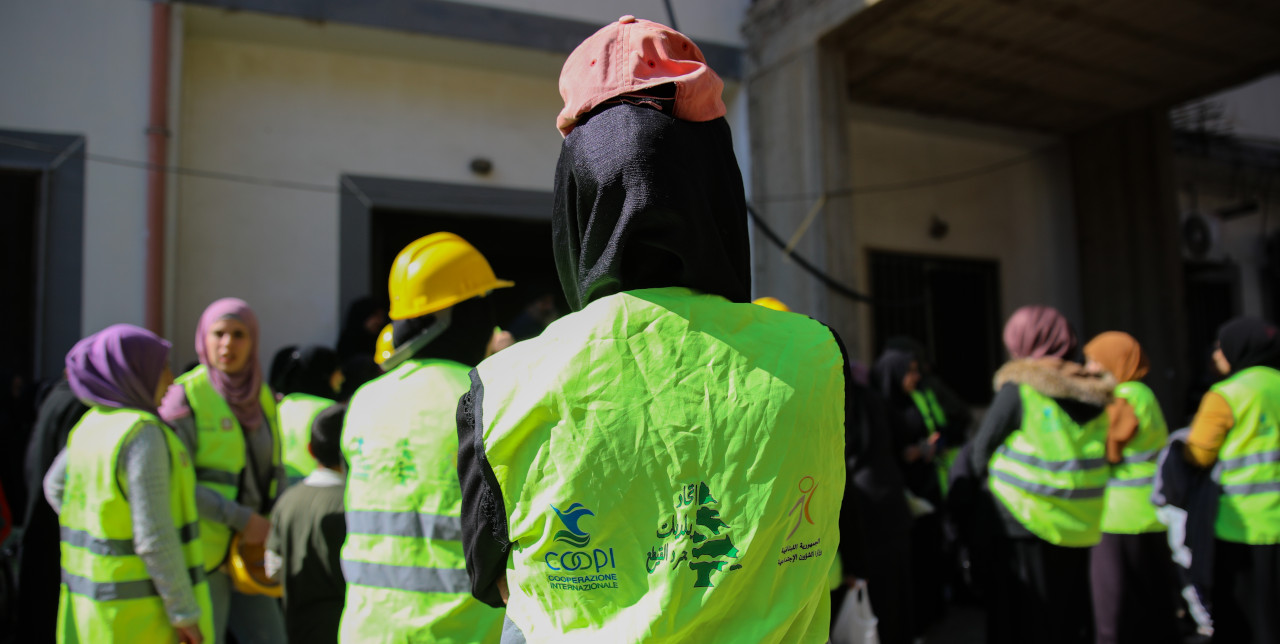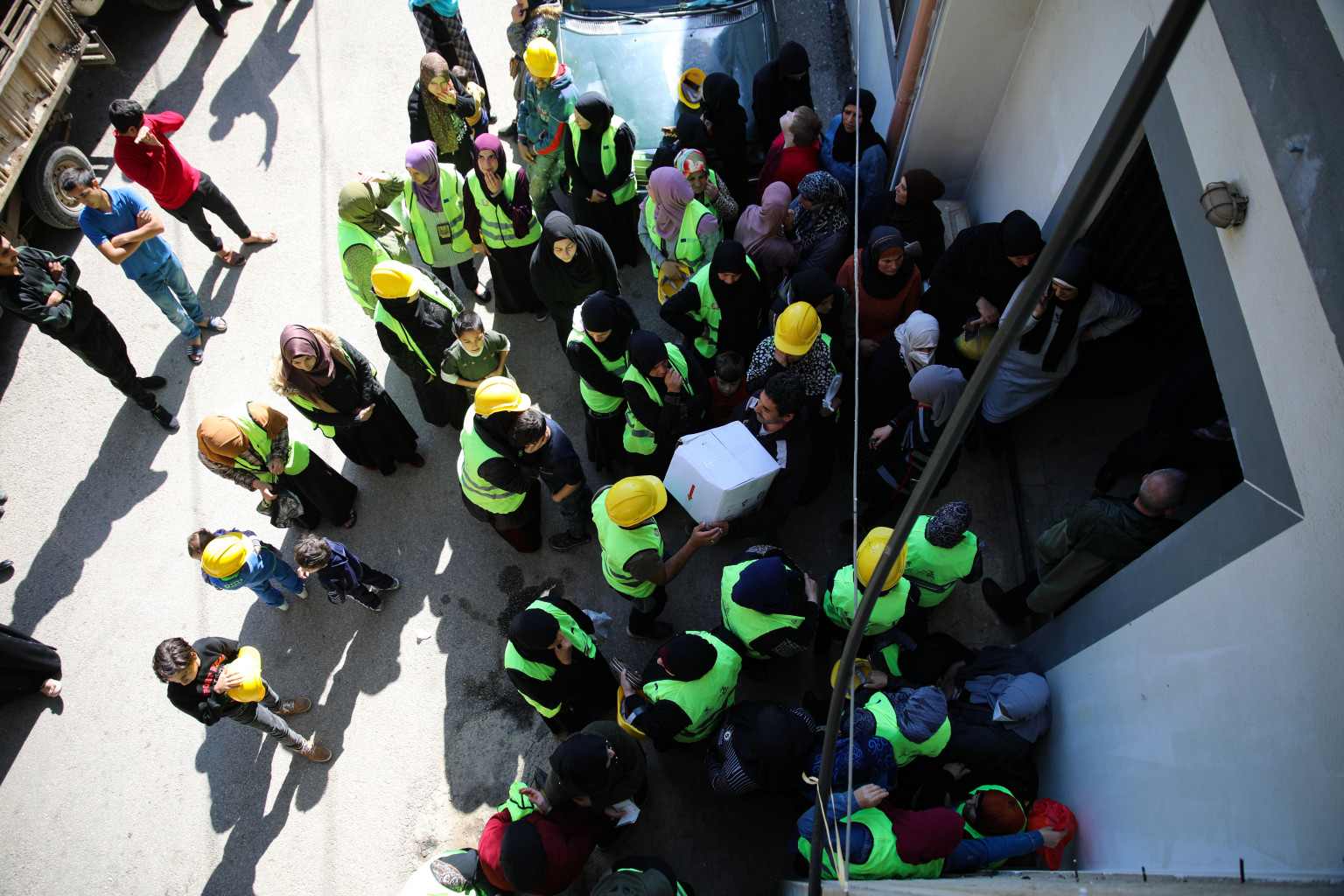21-12-2022 | di COOPI
Lebanon. Ines, a student, manages to financially support her studies and her family
In the remote village of Mishmish, in the northern region of Akkar, about 100 women dressed in yellow jackets with the logo of COOPI - Cooperazione Internazionale crowd in front of the still closed doors of the municipal building. Among them, Ines, 19, a biology student at Lebanese University, waits like all the other women for the doors to open to receive a box of food distributed by COOPI. Says the young student:
After the crisis, it was difficult for us in the family to feed ourselves.
The boxes of food, 27 kg each, contain oil, rice, pasta, tuna and other vegetables. In total, 794 boxes of food will be distributed today in the 4 municipalities where COOPI has launched the 'Cash for work' project, financed by the Italian Agency for Cooperation and Development - AICS through the European Union's MADAD programme. It was implemented in cooperation with the Union of Municipalities of Jurd el-Khaytee (Fnaidek, Mishmish, Chan, Qurayat) and the Ministry of Social Affairs (MoSA) from November 2021 to December 2022. In the poor and remote region of Akkar, far from Beirut, this project enables more than 700 families to support their needs in a country in the middle of an economic, political and health crisis. It also employs 214 women (30% of all beneficiaries), thus aiming to increase female employment in the region and improve gender equality.
Inès, who lives with her parents as well as her younger brother and sister, explains:
COOPI, which hired workers for 2 million lire a month, helped me to support my family but also to pay university fees to continue my studies. My mother is a housewife and my father works in construction when he finds a building site. This donation of food is one of the only ways we have to feed ourselves because the family's income is very low.
The work done by the project beneficiaries allows the municipality to carry out activities at a lower cost. Inès says:
We do a lot of cleaning for the mosques, gardens and schools in the municipality. We believe we are doing the municipality a service by doing this work at zero cost thanks to COOPI, which provides all the equipment and pays our salaries.
COOPI intervened in Lebanon in 2013 alongside Syrian refugees and host communities, especially women and children. The flow of refugees in recent years, due to the continuing Syrian crisis, has exacerbated the Lebanese authorities' capacity to provide basic services to the population, particularly the most vulnerable. To date, more than one million Syrian refugees live in Lebanon, increasing the total population by more than 20 per cent when compared to pre-crisis figures.
Photos by: Florient Zwein




 Lebanon
Lebanon
